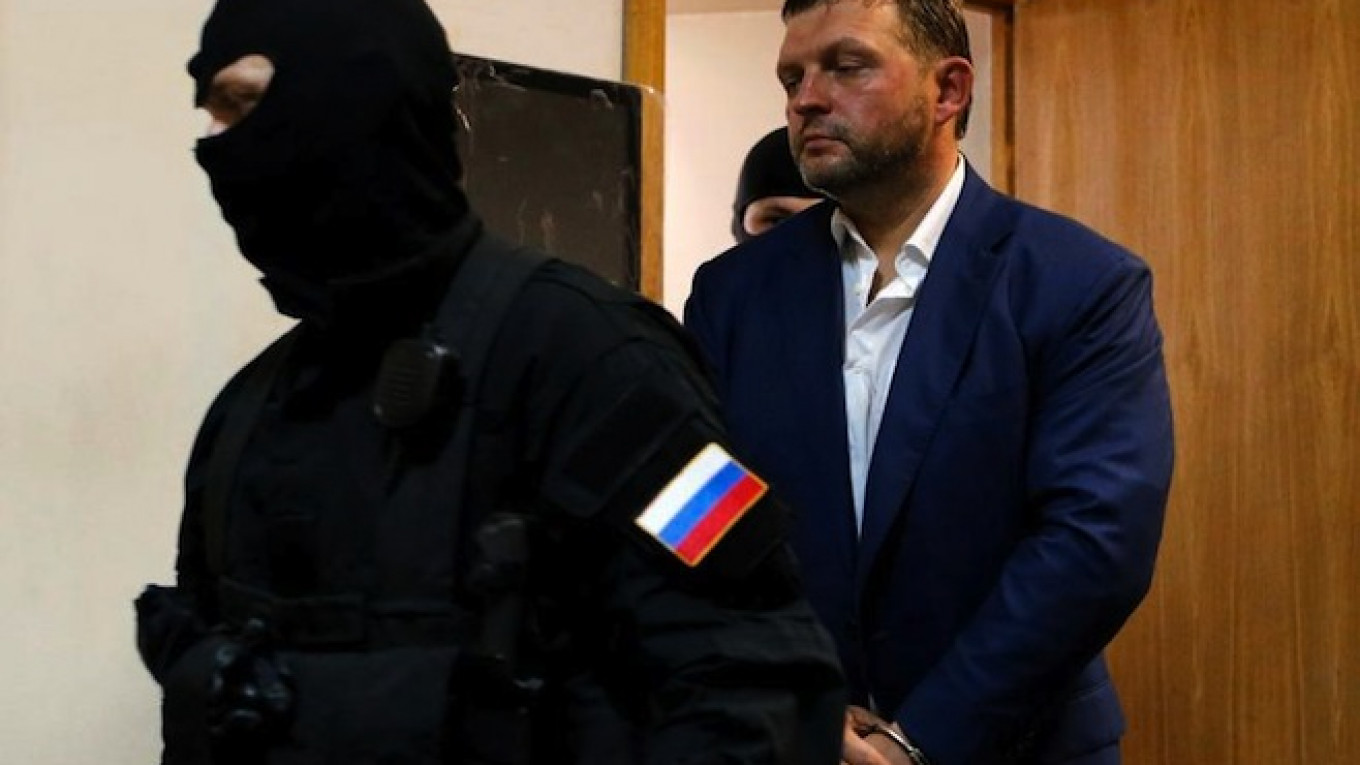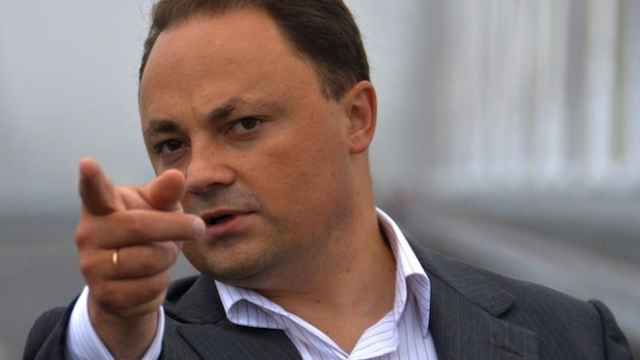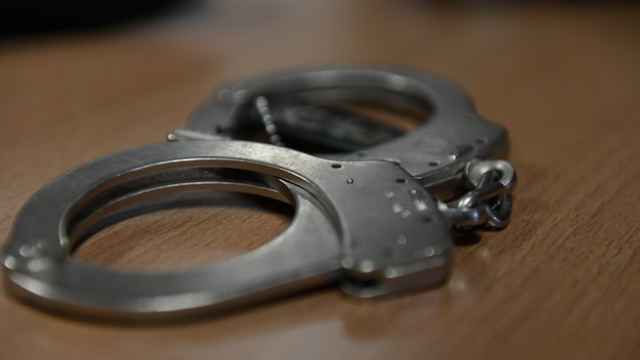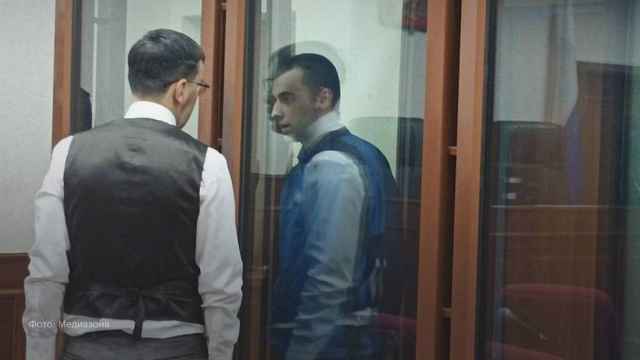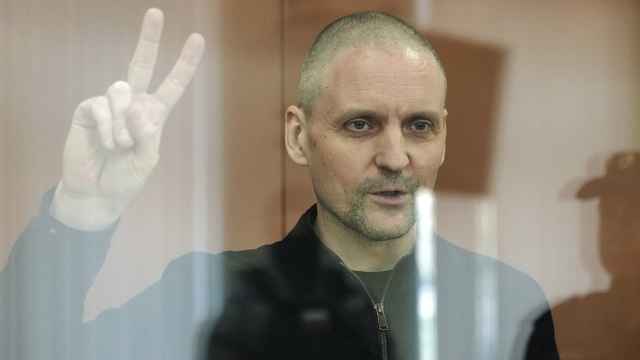A Russian governor arrested for corruption has claimed his innocence in a Moscow court.
Nikita Belykh, governor of the Kirov region in central Russia, was arrested Friday after allegedly taking a 400,000 euro ($440,000) bribe.
Appearing in court on Saturday, June 25, Belykh maintained that he was not guilty, telling the court, “I just turned 41. I am a successful bureaucrat. I need a success story and I want to prove I never did, don’t and never will take bribes.”
In what looked like a planned special operation Friday evening, the politician was photographed with stacks of cash coated in luminescent ultraviolet ink, which police used to prove Belykh's contact with the money.
Investigative Committee representative Vladimir Markin said that the money was the third installment of a bribe which Belykh had first started receiving back in 2014.
“A bribe doesn’t smell but sometimes it glows,” said Markin, in a statement on the Investigative Committee website. “Anticipating the hysteria that rises in such cases, I want to stress that there are no political motives in a corruption investigation like this,” he said.
The governor is charged with taking the money in return for protection and support for an investment firm in his home region. If found guilty, he faces up to 15 years in prison.
Belykh’s defense maintains, according to Kommersant newspaper, that while the governor took the money, it was “financial support for a non-budgetary foundation intended for reconstruction in the region.”
Belykh is the third Russian governor to be arrested on corruption charges over the last two years, but the Kirov official's liberal political stance has drawn additional attention to the case.
Russian business daily Vedomosti called the arrest, “a crackdown on Russian liberals and strengthening of Russian siloviki, [Russian politicians or officials with ties to the military or security services].”
Belykh’s arrest has shocked Russia's political elite, with several high-profile politicians speaking out on the governor behalf. Some commentators have alleged that the operation was a setup, and that only parts of story have been revealed by police.
Writing on his blog Saturday, opposition activist Alexei Navalny spoke of his surprise at Belykh's arrest.
“It is extremely difficult to imagine that Belykh would receive a cash bribe in the middle of a Moscow restaurant,” he wrote.
“Yes, his hands glow in the ultraviolet light, but would he really be sitting in there in the Lotte Plaza [Restaurant] counting his hundred euro notes? It isn't like him.”
Politician Vladimir Milov also wrote on his blog that he was “not impressed” by police photos of Belykh with the money. “I would not want to speculate about Belykh's guilt or innocence. But there are evidently obvious inconsistencies.”
Belykh began his career in the mid 1990s as a successful financier and entrepreneur. He later became involved in politics, winning a parliamentary seat in northern region of Perm and becoming vice-governor of the Perm region in 2004. In 2005, he was elected leader of Union of Right Forces, Russia’s liberal reformist opposition, but the party suffered defeat in the 2007 parliamentary elections. President Dmitry Medvedev appointed him as Kirov region governor in 2009, making him the only Russian governor associated with the liberal opposition movement.
He has become well-known in liberal-political circles, associating with officials including Anatoly Chubais, head of state technology company Rosnano, and Alexei Kudrin, former finance minister and deputy head of the president’s economic council. “My friend Nikita Belykh is in trouble,” Chubais wrote on his Facebook page Saturday. “I have known him for around 15 years, and I can hardly believe that he would take a bribe.”
Contact the author at m.fishman@imedia.ru
A Message from The Moscow Times:
Dear readers,
We are facing unprecedented challenges. Russia's Prosecutor General's Office has designated The Moscow Times as an "undesirable" organization, criminalizing our work and putting our staff at risk of prosecution. This follows our earlier unjust labeling as a "foreign agent."
These actions are direct attempts to silence independent journalism in Russia. The authorities claim our work "discredits the decisions of the Russian leadership." We see things differently: we strive to provide accurate, unbiased reporting on Russia.
We, the journalists of The Moscow Times, refuse to be silenced. But to continue our work, we need your help.
Your support, no matter how small, makes a world of difference. If you can, please support us monthly starting from just $2. It's quick to set up, and every contribution makes a significant impact.
By supporting The Moscow Times, you're defending open, independent journalism in the face of repression. Thank you for standing with us.
Remind me later.


